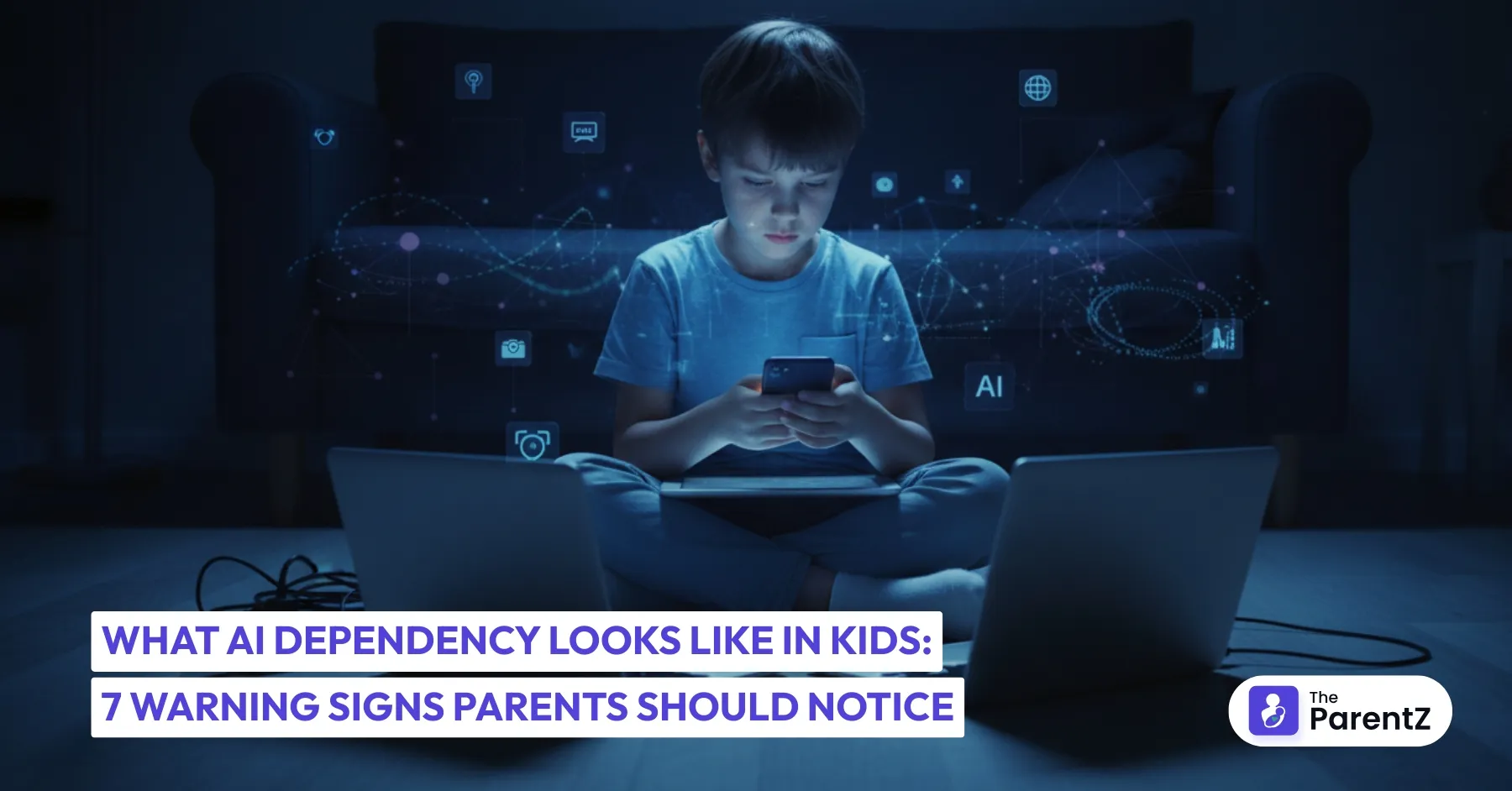You handed your kid a tablet to get five minutes of peace, and now they're asking ChatGPT to write their book reports. Or they won't start homework without asking AI for help first. And you're wondering if this is normal? Or is something actually wrong here?
We need to accept that AI tools aren't going anywhere. But just like with phones and social media, some kids develop unhealthy patterns. Let's walk through what real dependency actually looks like in kids.
#1. They Can't Start Tasks Without AI Anymore
Remember when your kid used to just start their homework? Now they freeze. They open the AI tool before even trying to think through a problem.
What's happening: This is called "learned helplessness." Research shows that when kids rely on external tools for cognitive tasks too early, their brain literally learns to wait for help instead of problem-solving independently. It's the same mechanism we see with calculator dependency in math.
What you can do: Institute a "think first" rule. Before any AI use, they must spend 5-10 minutes trying the problem themselves—even if they get it wrong. Write down their attempt. This rebuilds the neural pathways for independent thinking.
#2. Their Tolerance for Struggle Has Disappeared
Your kid hits one difficult sentence in an essay and immediately wants AI to rewrite it. They encounter a tough math problem and won't even attempt it.
What's happening: Psychologists call this "frustration intolerance." Kids need to experience productive struggle. It's how they build resilience and problem-solving skills. When AI removes all friction, they never develop the ability to push through challenges.
What you can do: Normalize struggle. Say things like "Your brain grows when you're confused. That stuck feeling means you're learning." Set a timer; they must try for 15 minutes before seeking help. Celebrate the attempt, not just the right answer.
#3. They Can't Explain Their Own Work
You ask them about their science project, and they go blank. The work is good, but they can't tell you what it means or how they did it.
What's happening: This is surface learning versus deep learning. When kids copy AI outputs without processing them, information never moves into long-term memory. Studies on learning show that explaining concepts to others is crucial for retention.
What you can do: Make "explain it to me" a household rule. Before they submit anything, they must teach the concept to you or a sibling. If they can't explain it simply, they don't understand it. Back to studying.
#4. Their Writing Voice Has Disappeared
You know your kid's writing style. It's got their personality in it. Now everything sounds generic. Polished but empty. Like it was written by a helpful robot (because it was).
What's happening: Writing isn't just about getting words on paper; it's how kids develop their voice, identity, and thinking process. When AI does this for them, they miss out on crucial identity development.
What you can do: Focus on rough drafts. Make the rule that first drafts must be theirs alone; messy, imperfect, real. AI can help with editing later, but the thinking and voice must come from them first.
#5. They've Stopped Asking You Questions
They used to come to you with "Mom, how do you think I should start this?" Now they just ask their phone.
What's happening: This breaks the social learning loop. Kids learn best through human interaction and dialogue. Research consistently shows that parent-child conversations boost academic performance and emotional regulation more than any technology.
What you can do: Create "human help first" hours. During homework time, AI is closed. Questions come to you, or they figure it out. Yes, this is more work for you. But those conversations matter more than perfect homework.
#6. They're Anxious When AI Isn't Available
No wifi? Dead device? They panic. Not because they can't entertain themselves, but because they genuinely don't know how to complete tasks without it.
What's happening: This is psychological dependency. Their confidence has become tied to tool access rather than their own abilities. It's similar to what we see with phone separation anxiety.
What you can do: Practice "unplugged" sessions regularly. Sunday homework with no AI. Learn to sit with the discomfort together. Their confidence will rebuild, but it takes time.
#7. Their Grades Look Great, But Their Understanding Is Shallow
Tests are rough, but projects are perfect. They ace homework but bomb in-class work. The disconnect is obvious.
What's happening: They're producing without learning. The work gets done, but knowledge isn't being built. This catches up eventually, usually in high-stakes situations.
What you can do: Stop optimizing for grades. Shift your questions from "What did you get?" to "What did you learn today?" Make learning the goal, not the perfect assignment.
Conclusion
AI dependency isn't about using AI; it's about needing it. It's the difference between a helpful tool and a mental crutch.
Your job isn't to eliminate AI from your kid's life. That ship has sailed. Your job is to raise a kid who can think with it and without it.
Start small. Pick one warning sign you recognize and address it this week. Not with punishment or shame, but with structure and support.
Your kid's brain is still developing. These patterns aren't permanent. But they do need your intervention.





Be the first one to comment on this story.